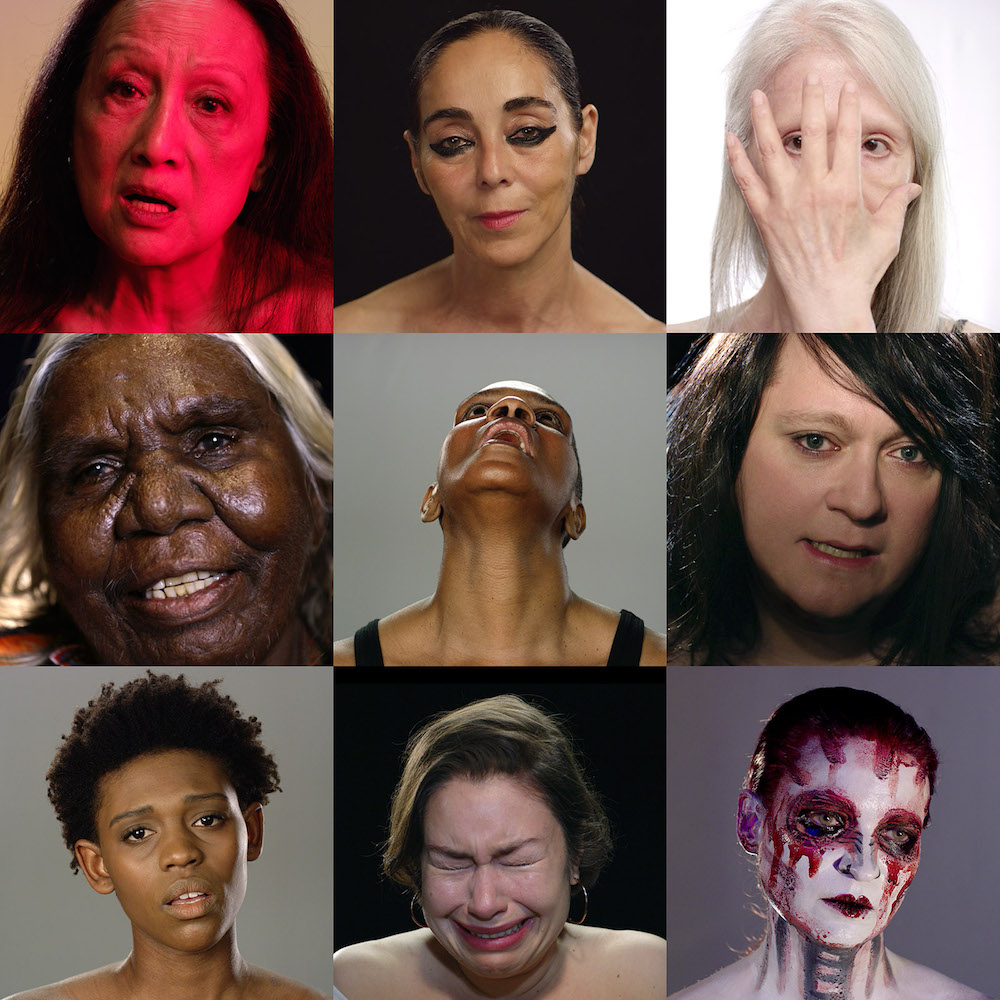The apocalypse will not arrive in a flash, but through the slow melting of ice, the smogging of clear skies, the rising of low seas that will eventually lead us to watch movies like Waterworld and Judge Dredd for survival advice. These changes come so gradually it’s nearly impossible to wrap your head around what the magnitude of what’s really happening, lest you go insane, and it’s no wonder climate scientists are so depressed.
Music about this apocalypse presented with no humor or irony is a hard sell, yet ANOHNI does it well. The delicate piano and strings that drove her earlier work have given way to a glitchy, maximalist sound created in tandem with producers Hudson Mohawke and Oneohtrix Point Never, characterized by heavily decayed electronics and cavernous, portentous drums. Stripped of vocals, this music would still sound like the end of the world; the addition of ANOHNI’s idiosyncratic, holy voice only gives us some context. She translates biblical occurrences into approachable terrors; the trees burning and the animals dying become only four degrees, a reduction both mundane and frightening.
Paradise, her new EP, comprises extant material from last year’s HOPELESSNESS, a stark and haunted album about this encroaching holocene released before a misinformed coalition of angry, racist white people managed to snatch back control of the country. That decades of progressive advancement might disappear underneath a literal boy’s club has added even more weight to this anxious streak in her music, and Paradise is not subtle about its political intent, or who it lays responsible for the state of affairs. “Mothers, your sons are trapped in a nightmare; they are not capable of responsibly negotiating the destructive agency that they now wield,” ANOHNI said in a press release. “More profound even than a crime against humanity, fathers and sons now compulsively prepare to commit ecocide, in a final and irreversible assault upon creation itself.”
Mission statement music is a hard sell, too, as the noble intentions of an album are superseded by one, big question: Does it bang? Well, yeah. You could hear the title track, in which ANOHNI shouts of the binary states of the world—“Paradise! Hopelessness!”—over a rumbling smear of distorted synthesizers and rolling hi-hats, at a club night thrown by depressives. Paradise is characterized by the tension between ANOHNI’s impassioned denunciation of her targets—“Jesus will kill you,” she warns on one song, after laying out a tidy description of the military-industrial complex’s impact on the earth—and the war zone urgency of the music, driven by fluting synthesizers that whirl and writhe like firecrackers laid out in the street, and machine gun percussion.
It’s just six songs long—and one of those, the mood-setting EP opener “In My Dreams,” doesn’t work outside of its sequencing—but it’s a humbling listen, as was HOPELESSNESS. There is no metaphor for the problem, which sprawls in every direction, from the ruination of the earth to the corruption of our political processes to the ceaseless wars disrupting faraway countries. “You are my enemy,” ANOHNI sings, after imagining herself giving birth to someone eventually intent on ruining the Earth. “You’re a mean old man,” she sings on “Jesus Will Kill You,” a succinct-enough description of Trump and his ilk. The music is melancholic, urgent, enveloping. After more than a decade, her tightly controlled croon has lost none of its flinching effect to communicate shock and smoldering rage. Aside from sparking urgency and indignation, it evokes feelings the other side could use: humility, and shame.
But the innate grace in her voice resists any resignation to the way things are; it resonates as a call to arms, now that the aggressor is in sight. The action demanded is swift, with no time to spare. Last week ANOHNI announced you could only hear the final song of the album, “She Doesn’t Mourn Her Loss,” if you e-mailed her. (She asked fans to send “a sentence or two what you care most about, or your hopes for the future… a gesture of anonymous vulnerability,” and added, “I want to hear your collective mind. I want to see that river of thoughts.”) Caught up in the work week, I forgot to notice the deadline mentioned at the end of her note. By the time I realized, it was too late; the song, like much else, now exists solely in the void.





